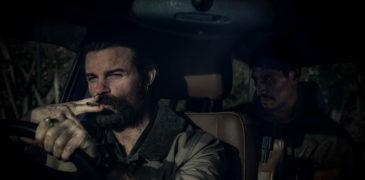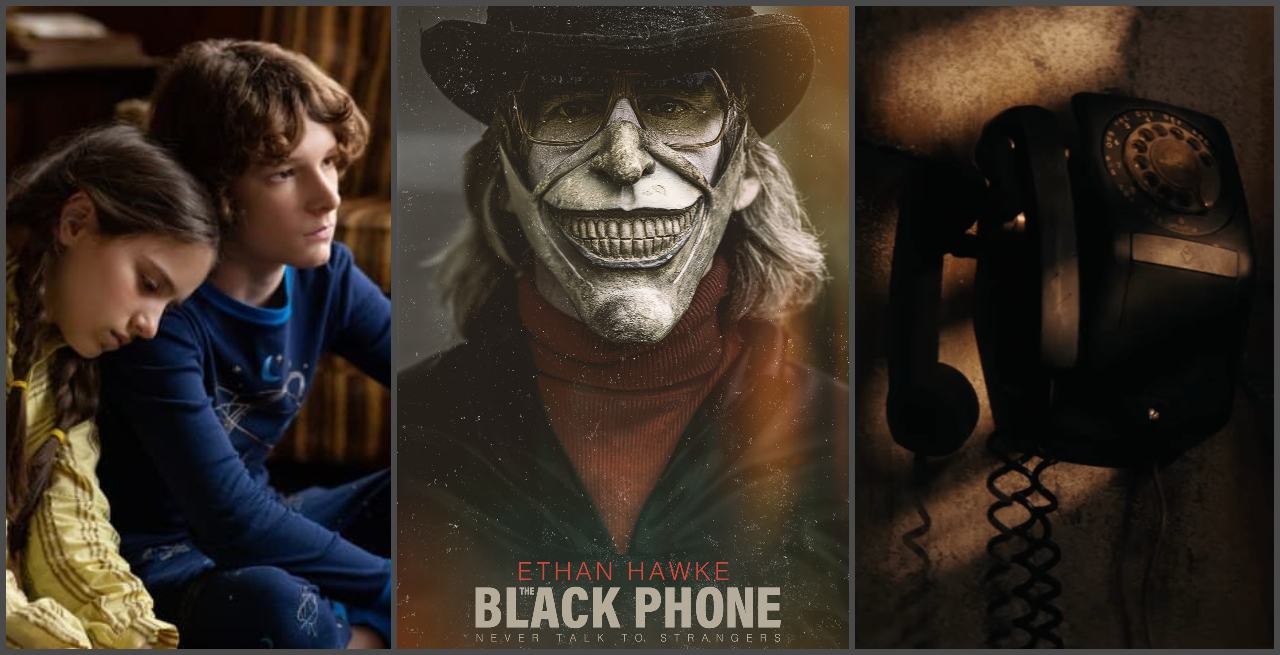
The combination of source material from a writer like Joe Hill and a director like Scott Derrickson was always going to pique the interest of horror fans. After leaving production on Dr. Strange and the Multiverse of Madness for the oft-cited “creative differences”, Derrickson elected to work on something less flashy and more intimate. The result is the adaptation of Hill’s short story The Black Phone from his 2005 20th Century Ghosts collection of short stories.
Hill’s story, though atmospheric and effective, is somewhat slight for a feature-length adaptation, and Derrickson teams up with his regular screenwriting collaborator C. Robert Cargill to flesh it out, taking inspiration from Derrickson’s own childhood, even altering the setting to a Denver neighbourhood much like the one he grew up in. He increases the number of victims taken by Ethan Hawke’s character The Grabber, and gives them their own backstories as well, making them full characters in their own right, instead of simply spooky voices at the other end of the titular phone.
From the outset, Derrickson’s film combines a sense of childhood nostalgia with a powerful undercurrent of violence and fear. Cheerful childhood pursuits such as baseball, bottle rockets, and bicycle rides are interrupted by The Grabber’s first grab, transitioning into an unnerving opening credits sequence, underpinned by Mark Korven’s deeply unsettling score. After this point, it becomes clear that childhood in this neighbourhood is far from idyllic, and The Grabber is a long way from being the only threat. Indeed, he is paralleled in a number of more “ordinary” characters, and there are risks much closer to home. Violence is a fact of daily life, and as Finney will learn, you need to stand up for yourself.
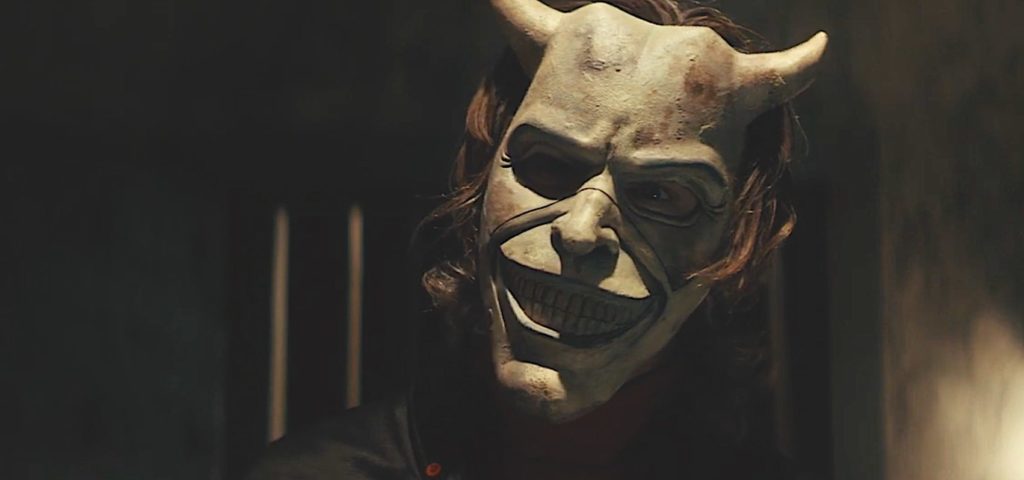
As a quick note, there are scenes of domestic abuse, which are deeply uncomfortable, but carefully portrayed. These kids are not sanitised and idealised Hollywood children; they swear, fight, bleed and cry, giving a greater sense of realism to a film that is focused almost entirely upon them. Also helping in this regard are the truly excellent performances from all the young actors, most especially Mason Thames and Madeleine McGraw as the two young leads. Thames has mentioned in interviews that his first audition was via Zoom because of COVID-19 regulations, and it’s easy to see how even under those circumstances, he won the role – his performance as the thoughtful and gentle Finney is tender and utterly believable. As his feistier younger sister Gwen, McGraw, too, is superb, easily standing up to the older actors with whom she shares scenes.
Ethan Hawke, as The Grabber, has the additional difficulty of acting through a series of full and half masks (eerie creations by the legendary Tom Savini) for the majority of his time on screen, but even so, manages to effectively express a series of complex emotions, giving us hints at what lies beneath. Wisely, however, Derrickson and Cargill choose never to attempt to explain or in any way rationalise his actions; The Grabber is a monster, a childhood nightmare, not a psychological case study. Where the behaviour of other violent characters is given some illumination, The Grabber remains a classic boogeyman and is the more frightening for it.
The Black Phone of the title is almost a character itself. Through some hallucinatory SFX, it seems more alive than the victims whose voices emerge from it, and it isn’t always clear if it’s there to help or hinder.
The film is masterfully shot and lit, making especially effective use of negative space in the many scenes in the basement cell, where Finney is trapped, to emphasise the apparent loneliness of his situation and, later, to suggest places where unseen helpers might be standing. Outside of the cell, the use of colour, in particular through the use of authentic 70s fashions, but also from a gentle sepia tone, effectively brings to mind films made in the era in which this is set.

Although there are certainly some spooky moments featuring the ghosts of the Grabber’s previous victims and the titular phone, they are, perhaps unexpectedly, not the main sources of tension and horror in this film. That comes from the more mundane: Finney’s attempts to escape the basement and evade The Grabber’s wrath, Gwen’s lonely and risky search for her brother (albeit aided – somewhat – by clairvoyant dreams), and the simple but real horror of child abduction and the effect it has on a neighbourhood. The supernatural elements are weirdly inessential, and the story could certainly stand alone without them with very few changes, but they do add a nice bit of extra flavour.
The film ties together a thread that runs throughout the film in what I found to be a satisfying way, but at the same time, makes use of a few rug-pull surprises to keep you from getting too comfortable- some from the original story, some new. It manages to evoke films like E.T. and The Goonies, or perhaps the closer to home IT and Stand By Me, based on stories by Hill’s father, Stephen King; at its heart, this is a film about kids ganging together against a threat that the adult authorities are proving useless, or even actively harmful, against. It’s just that some of the kids happen to be dead.
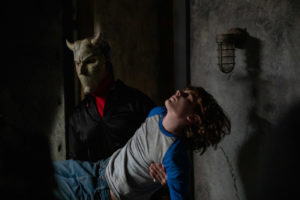
There’s a palpable sense of helplessness running throughout the film as one of the most admirable aspects, which really adds to the tension. It’s helped hugely by such strong performances from a large young cast, especially the two young leads, as well as writing that doesn’t sanitise the childhood experience. It’s nostalgic without descending into pastiche. Derrickson’s use of elements from his own childhood to flesh out characters and situations, whilst remaining authentic to Hill’s short story, give it a real sense of authenticity.
It’s hard to think of something significantly negative – I really enjoyed the film – but I would perhaps have liked a bit more of a balance between the supernatural elements and the mundane. The fact that the film could almost stand alone without the supernatural aspects speaks to its realism, but I’d have liked a bit more spookiness!
Overall, a creepy but tender offering from two horror legends and a talented cast and crew, this phone is one that’s definitely worth answering.
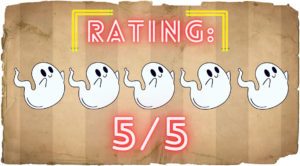
More Film Reviews
It was about halfway through watching Rob Jabbaz’s debut feature The Sadness that I realized I was in the hands of a maniac. Taipei resident Kat (Regina Lei) is hiding… The Guyver is a 1991 American live-action tokusatsu sci-fi horror, written by Jon Purdy, and directed by Screaming Mad George and Steve Wang. The film is an adaptation of the… 30 Days of Night, David Slade’s second offering in a diverging filmography, manifests itself as a stimulating spin for survival film junkies and vampire lore hounds. Notwithstanding falling short of… Despite being one of Japan’s biggest film studios throughout the late 40s and 50s during the golden age of Japanese cinema, Daiei were struggling by the mid-60s and had to… Romi is a 2023 Canadian sci-fi horror, written by Susie Moloney, and directed by Robert Cuffley. Susie is most notable as a writer on the TV shows Blackstone (2015), and… It feels like there is constant chatter online about the decline of the horror genre. Yet, for every hollow remake and safe studio engineered big-budget vehicle, there is a wealth…The Sadness (2021) Film Review- A Powerful, Repellent Horror Spectacle
The Guyver (1991) Film Review – Early Western Anime Adaptation
30 Days of Night (2007) Film Review – Blood Runs Cold
Kanto Woman Infamy (1969) Film Review – Surviving in a Man’s World of Vice and Dishonour
Romi (2023) Film Review – Ghost in the Machine [Blood in the Snow Film Festival]
Coming Home in the Dark (2021) Film Review – A Night Drive Straight into Hell

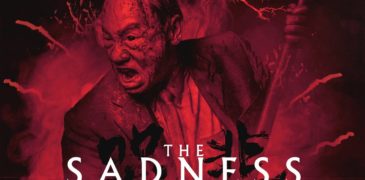

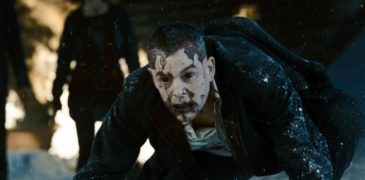
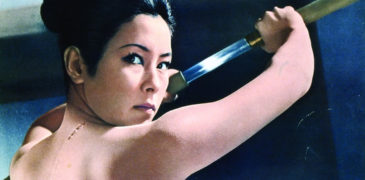
![Romi (2023) Film Review – Ghost in the Machine [Blood in the Snow Film Festival]](https://www.grimoireofhorror.com/wp-content/uploads/2023/11/Romi-cover-365x180.jpg)
